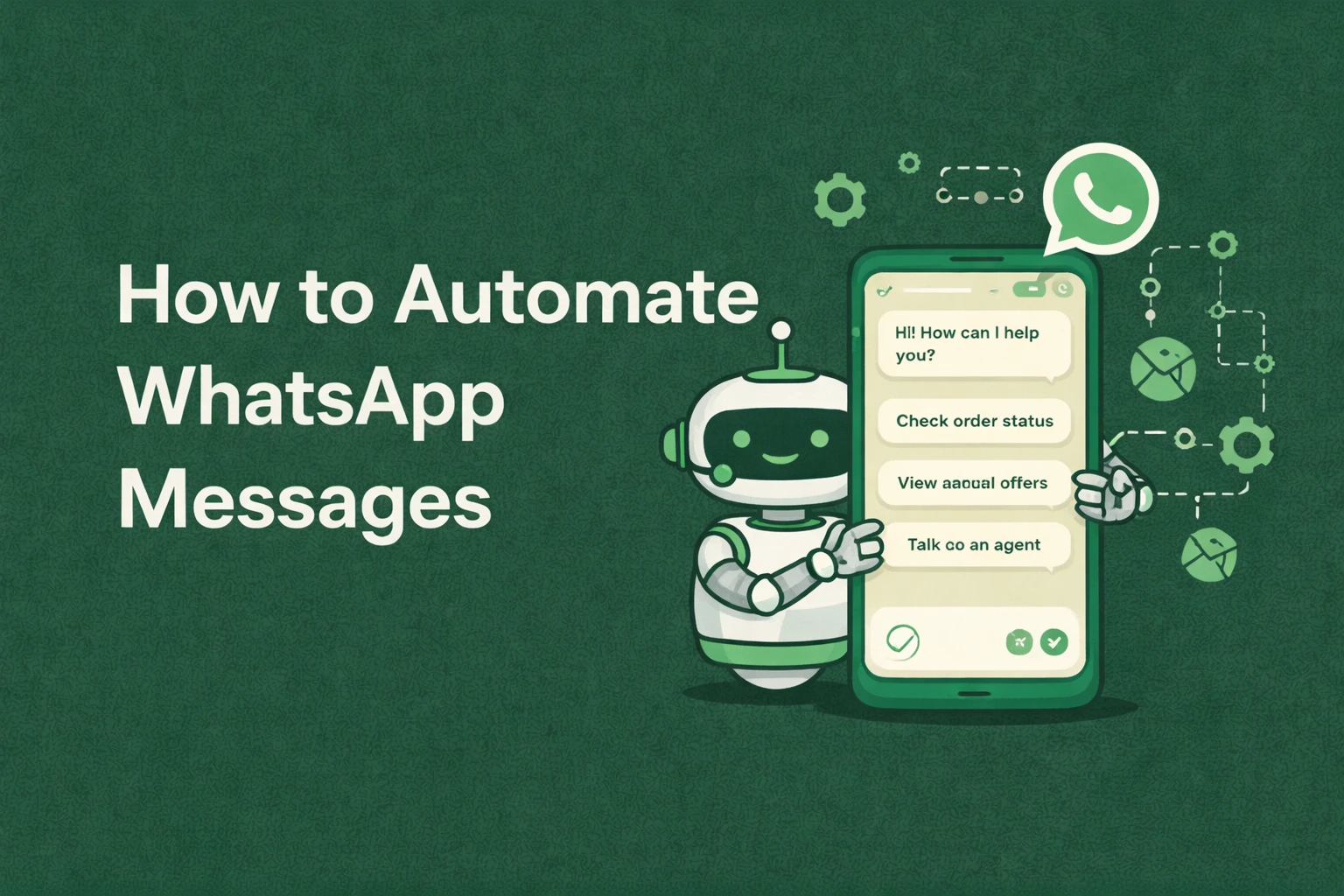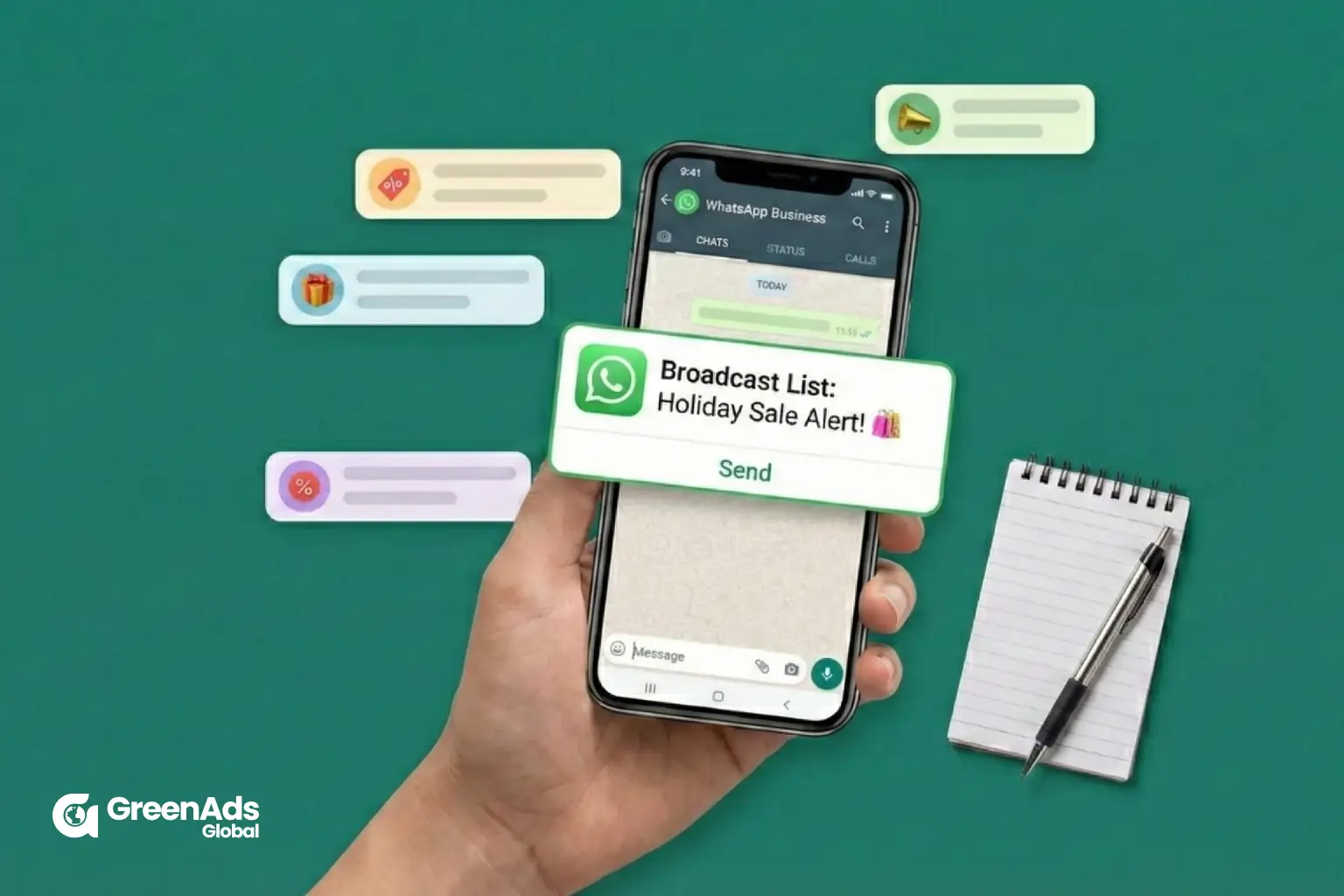Unlock Your 14-Day Free Trial with Free Credits!
Get Started for Free
Google RCS Messaging vs WhatsApp Business API: The Future of Conversational Marketing
May 9, 2025
.


Messaging is changing fast. People don’t want to fill out forms or wait on hold. They want quick, real-time chats. And that’s exactly what conversational marketing is all about.
Now, two major platforms are in the spotlight: WhatsApp Business API and Google RCS Messaging. Both help businesses connect with customers in a smarter, more personal way. But which one’s right for your brand? And where’s this whole messaging game heading?
Let’s break it down.
What Is Google RCS Messaging?
RCS (Rich Communication Services) is basically the next-gen upgrade to SMS. It’s backed by Google and turns boring text messages into rich, app-like conversations—think images, buttons, carousels, read receipts, typing indicators, and more.
No extra apps needed. It works right inside the default Android Messages app, making it super easy for users to access rich messages without installing anything.
What Is WhatsApp Business API?
You already know WhatsApp. Over 2 billion users worldwide. Now, imagine plugging into that power as a business.
The WhatsApp Business API lets brands send messages, alerts, reminders, and even run chatbots—all inside a tool people already use daily. It supports file sharing, locations, quick replies, automation, and works great with CRM tools.
Unlike the free WhatsApp Business app, this version is built for scale. But yes, it comes with costs.
Google RCS vs. WhatsApp Business API: The Battle for Conversational Marketing
Messaging is changing fast. RCS Messaging is growing as the new version of SMS, while WhatsApp Business API continues to be a top choice for businesses to connect with customers.
At Google I/O 2025, Google shared that RCS now has over 1.2 billion active users, with strong growth in India, the U.S., and Europe. On the other hand, WhatsApp Business API has crossed 2 billion users, and Meta is pushing it hard by adding features like chatbots, payments, and shopping tools.
The big news? Apple has finally announced RCS support for iPhones. That means RCS will now work across both Android and iOS devices, which could boost its usage even more in the coming years.
So, is this a battle between RCS and WhatsApp?
Not really. Most businesses may end up using both. WhatsApp works well for personal chats and support. RCS is great for rich, branded campaigns straight to a user’s default messaging app.
At the end of the day, it’s not about choosing one—it’s about reaching your customers wherever they are.

Key Differences: Google RCS vs. WhatsApp Business API
WhatsApp Has the Reach. RCS Has the Native Edge.
Let’s be honest. WhatsApp Business API wins on reach and adoption. It’s already where your customers are. Plus, it works on both Android and iPhone, and its end-to-end encryption gives users peace of mind.
But RCS Messaging is picking up pace, especially in markets like India and the UAE. It works natively on Android phones (no app needed), and with Google behind it, it’s evolving fast. Plus, RCS campaigns are usually cheaper than WhatsApp ones, especially for large-scale use.
Is There a War Coming?
Not exactly. It’s more like a shift. Both platforms are growing, and businesses are starting to use them together, not against each other.
WhatsApp is perfect when you want to reach opted-in users with personal conversations.
RCS is ideal for promotional campaigns or reaching users who haven’t saved your number yet.
Use both, and you’ve got a full-funnel messaging strategy.
So, What Should Your Business Choose?
Here’s a quick cheat sheet:
Use WhatsApp Business API if:
- You already have a customer base on WhatsApp
- You need end-to-end encrypted messages
- You're running service notifications, support, or reminders
Use Google RCS Messaging if:
- You want to run rich promotional campaigns
- You’re reaching Android users
- You want a cheaper alternative to WhatsApp API for scale
Honestly, the smart move? Combine both. Let WhatsApp handle personalised messages, and use RCS for rich marketing blasts.

Conclusion: The Future of Conversational Marketing
The tools are changing. The mindset should too.
This isn’t about choosing WhatsApp Business API or RCS Messaging. It’s about using both to meet people where they are—and how they want to talk.
If you're serious about customer engagement in 2025, conversational marketing is no longer a “nice-to-have.” It’s a must.
Ready to make the switch or scale up your messaging game? Let’s talk. We’ll help you set up a strategy that works across WhatsApp, RCS, and beyond.
Chat with us or book a quick call. Let’s make your messages matter.
₹ 899
₹ 2,249
₹ 3,149
$30
$50
Book a One-to-One Meeting With Our Product Expert
Have questions? We have got answers! Connect with our product expert for a personalized demo session and discover the best messaging solutions for your business.







.svg)